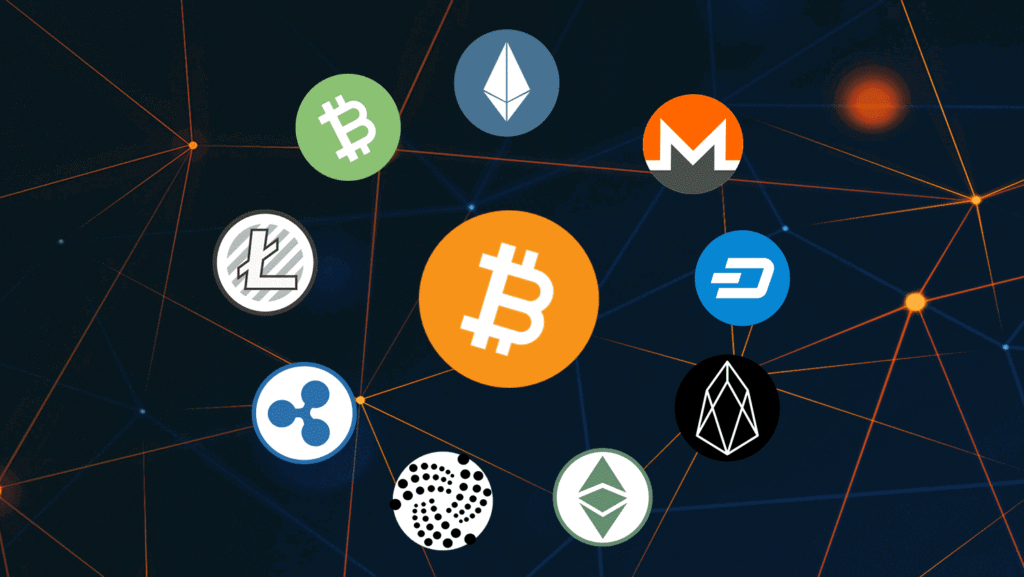The Kingdom of Bhutan has long balanced tradition with forward-looking policy, and its national strategy for digitization is no exception. Instead of building a one-size-fits-all identity database, Bhutan is embracing Ethereum as the cryptographic backbone for a national digital identity system that places privacy, consent, and security at the center.
This approach allows citizens to prove who they are—and what they are eligible for—without exposing unnecessary personal data. In a world where identity theft, data leaks, and verification friction are on the rise, this Bhutanese model shows how public-permissionless blockchains, verifiable credentials, and zero-knowledge proofs can transform how states and citizens interact.
Why Bhutan Chose Ethereum for National Identity
Bhutan’s choice reflects a clear goal: build trust without creating a surveillance honeypot. Traditional identity databases centralize sensitive information, making them attractive targets and raising civil liberties concerns. With Ethereum, Bhutan can cryptographically anchor the integrity of identity records while keeping personal data off-chain, under the control of the citizen and the credential issuers. This balance is essential for a small, interconnected society where public confidence is paramount.
A second driver is interoperability. Ethereum sits at the heart of a vast ecosystem of tools supporting decentralized identity (DID), W3C Verifiable Credentials, and smart contracts. By aligning with widely adopted open standards, Bhutan ensures long-term compatibility, reduces vendor lock-in, and benefits from global security audits. Additionally, using Layer-2 networks and rollups allows for low-cost, high-throughput operations—vital for a nationwide system that must scale to millions of verifications without creating bottlenecks.
Finally, Ethereum’s transparency fosters accountability. The public can verify that state contracts are executed as written and that credential registries are tamper-evident. This visibility is a powerful counterweight to black-box identity platforms, reinforcing the social contract between Bhutan’s institutions and its citizens.
The Building Blocks of a Bhutanese Digital ID

Off-Chain Data, On-Chain Guarantees
At the core of the system is a simple rule: personal data stays off-chain. Citizen attributes—name, date of birth, residency, qualifications—reside in secure databases controlled by trusted issuers such as government ministries and licensed organizations. What reaches Ethereum is a compact cryptographic commitment, a hash that proves a credential exists and has not been altered or revoked. This approach drastically reduces exposure while retaining immutability and tamper-resistance for the integrity layer.
Decentralized Identifiers and Wallets
Citizens receive Decentralized Identifiers (DIDs), globally unique identifiers that are not tied to any single registrar. A user’s wallet—on a phone, card, or hardware token—holds their private keys and verifiable credentials. Because DIDs are portable and resolvable across different systems, a Bhutanese citizen can interact seamlessly with banks, clinics, universities, and government portals without re-registering everywhere. This user-centric identity model flips the traditional stack: the person, not the platform, becomes the nexus of trust.
Verifiable Credentials and Selective Disclosure
A ministerial department or accredited body issues a credential stating, for instance, that the citizen is over 18, has a valid driving license, or qualifies for a subsidy. When a service provider asks for proof, the citizen can generate a zero-knowledge proof that confirms the required fact—say, “over 18”—without revealing their full birth date or other personal details. This selective disclosure preserves privacy while eliminating paper-based checks, photocopies, and manual review.
Smart Contracts for Credential Governance
On Ethereum, smart contracts manage registries for issuers, schemas, and revocations. Only authorized issuers can publish or revoke credential hashes, and every change is recorded on a public ledger. Auditors can verify that rules are enforced consistently. At the same time, the contracts are kept minimal and gas-efficient, with bulk operations and Layer-2 settlement to contain costs. The result is a compact trust fabric that scales while remaining transparent.
Privacy by Design: What It Means in Practice
Minimization and Consent
Bhutan’s identity framework follows strict data minimization. Service providers must request only the attributes necessary for a transaction. The citizen’s wallet records consent logs, making it clear when and why any proof was shared. If a clinic needs to know a person’s blood type and insurance eligibility, it should not see their address or employment history. This separation counters function creep, where identity databases slowly morph into generalized surveillance tools.
Zero-Knowledge Proofs for Everyday Life
With zero-knowledge proofs, common tasks become safer. Buying age-restricted goods, accessing a senior citizen discount, or proving residency for school enrollment can all be done with cryptographic attestations that reveal no extraneous data. For citizens, this reduces the anxiety of oversharing; for businesses, it reduces liability by limiting the personal information they store.
Rolling Keys and Account Recovery
Usability matters. Bhutan’s system supports key rotation and social recovery so that losing a device does not mean losing identity. Guardianship models, recovery phrases kept in secure custody, and multi-factor authentication combine to give users practical safety nets. The state does not need to hold a master key; instead, it enables robust recovery options while preserving individual control.
Architecture: How Ethereum Powers the Stack
Layer-2 for Scale and Cost Control
While Ethereum mainnet offers unparalleled security, Bhutan leans on Layer-2 rollups for day-to-day credential anchoring and revocation registries. Batching writes reduces fees and latency. Periodic checkpoints to the mainnet anchor the state, giving the system Ethereum-grade finality without incurring mainnet-only costs for every operation. For high-volume verifications—think public transit discounts or clinic check-ins—zk-rollups further accelerate throughput and allow privacy-preserving proofs to be verified cheaply.
DID Methods and W3C Standards
The network adheres to W3C DID and Verifiable Credentials specifications, ensuring wallets and verifiers can interoperate across borders. Bhutan can integrate with international education credential frameworks, health passes, or travel identification pilots without rebuilding middleware. This standards-first posture is key to longevity and resilience in the face of evolving technology.
Off-Chain Storage and Confidential Computing
Citizen documents that must be digitized—scanned birth certificates, licenses, diplomas—are encrypted and stored in off-chain repositories or distributed storage. Access policies are enforced with attribute-based encryption, and sensitive computation can be handled in confidential computing environments that keep data protected even during processing. Ethereum’s role is to notarize the state and mediate permissions, not to warehouse private files.
Government Services: From Friction to Fluidity
Social Services and Subsidy Targeting
A recurring problem in welfare programs is leakage and mis-targeting. With verifiable credentials tied to proofs of eligibility, subsidies can be delivered precisely and instantly. A farmer can present a credential proving landholding status and environmental compliance, and a subsidy can be released via a transparent, rule-based smart contract. Auditors can check that funds reached the intended recipients without exposing personal records to the world.
Health, Education, and Professional Licenses
Hospitals can verify insurance and identity at check-in using privacy-preserving proofs, minimizing waiting times and administrative overhead. Schools issue digital diplomas that employers can verify in seconds, reducing the risk of falsified documents. Professional bodies can publish revocation events if licenses lapse, ensuring the labor market remains clean and competitive. All of this happens with consented data flows and selective disclosure rather than blanket data dumps.
Cross-Border Interactions and Digital Trade
As Bhutan expands digital trade relationships, its citizens and firms benefit from standards-aligned identity. Banks in partner countries can accept Bhutanese credentials, reducing onboarding friction and improving access to finance. Trade certificates, quality marks, and origin attestations can ride on the same rails, with Ethereum providing the global, neutral settlement layer.
Financial Inclusion and Responsible Innovation
On-Ramps Without Over-Exposure
Identity is essential for safe finance, but traditional KYC processes are intrusive and repetitive. With DIDs and verifiable credentials, Bhutanese banks and fintechs can perform risk-based onboarding while seeing only the attributes they need. A credit union might request proof of income and residency without storing a scan of a national ID card. This supports inclusion by lowering the barrier for the unbanked while raising the bar for security.
Micropayments and Public Benefits
Because Ethereum can handle programmable value, verified identity connects naturally to conditional cash transfers and voucher systems. A verified parent can receive school meal tokens; a verified patient can receive travel subsidies for clinic visits. These micro-benefits settle transparently and can be audited without revealing individuals’ private details.
Security Model: Threats and Countermeasures
Guarding Against Correlation
One risk with any identity system is cross-context correlation. Bhutan mitigates this by encouraging pairwise DIDs, meaning each citizen uses a different identifier with each service provider. Verifiers see proofs that are valid in their own context but cannot link them to proofs shown elsewhere. This, combined with zero-knowledge proofs and selective disclosure, sharply limits the surveillance surface.
Resilience and Disaster Recovery
Because Ethereum is a global network, Bhutan’s identity anchor benefits from geographic and infrastructural diversity. Even in the face of localized outages, the cryptographic roots of trust remain accessible. Regular state snapshots, distributed backups, and multi-region issuer infrastructure ensure the system can recover quickly from cyberattacks or natural disasters. The design avoids single points of failure by separating roles: issuers issue, wallets hold, verifiers verify, and the blockchain attests.
Governance and Revocation
Strong governance is non-negotiable. Bhutan’s framework defines clear processes for adding and removing accredited issuers, publishing revocation registries, and updating credential schemas. Public dashboards can show the status of registries, while smart-contract-enforced role management ensures that no single administrator can unilaterally alter critical parameters. This adds institutional trust on top of cryptographic trust.
User Experience: What Citizens Actually See
A Wallet That Feels Familiar
For non-technical users, everything lives in a simple digital identity wallet. They can view issued credentials, receive new ones with a tap, and present privacy-preserving proofs with clear consent prompts. The wallet explains what information is being shared and why, and provides readable logs so citizens can review their history at any time. Accessibility features and multilingual support ensure that the system is inclusive across Bhutan’s diverse communities.
Enrollment and Verification Journeys
Enrollment blends in-person verification with digital issuance. A citizen might visit a local office to scan legacy documents or submit biometrics for liveness checks. After validation, their wallet receives signed digital credentials from the relevant agency. When visiting a clinic or applying to a university, the user scans a QR code, reviews a concise request—such as “prove you are a resident of Thimphu and over 18”—and approves. The verifier receives a cryptographically signed proof, and the visit proceeds without heavy paperwork.
Recovery, Support, and Education
A robust help system is critical. Bhutan supports recovery at community centers, banks, and government offices where trained staff can guide citizens through the process without ever seeing private keys or full data. Public education campaigns explain concepts like consent, private keys, and selective disclosure using plain language and real-world analogies so that digital identity feels empowering, not intimidating.
Economics: Costs, Incentives, and Sustainability
Gas Efficiency and Rollup Economics
On-chain activity is carefully optimized. Rollups batch credential operations; registry updates are compact; and contract upgrades follow stringent audits to avoid costly mistakes. Over time, as more activity moves to Layer-2, the per-transaction cost for anchoring and verification falls, making the system sustainable even under heavy usage.
Incentives for Issuers and Verifiers
Government agencies and accredited issuers gain operational efficiencies: fewer manual checks, lower fraud risk, and faster service times. Verifiers such as banks and hospitals reduce liability by holding less personal data and gain competitive advantage through faster onboarding. Citizens benefit most of all from control, privacy, and time saved. These aligned incentives create a virtuous cycle that sustains the ecosystem.
Policy and Ethics: Guardrails for a Human-Centric System
Legal Foundations and Rights
A national digital identity touches fundamental rights. Bhutan’s framework embeds legal protections around purpose limitation, data portability, and the right to be forgotten where feasible. Though blockchain data is immutable, personal data is not on-chain; revocations and expiries allow citizens to retire old credentials. Clear grievance mechanisms let users challenge incorrect records or misuse.
Avoiding Digital Exclusion
No identity program succeeds if it leaves people behind. Bhutan’s design emphasizes offline-capable wallets, community enrollment centers, and assisted verification paths for citizens without smartphones. Credentials can be stored on secure cards with PINs, ensuring that connectivity gaps do not become identity gaps.
Transparency and Public Oversight
The best antidote to fear is sunlight. Bhutan publishes open documentation, code audits, and metrics on system performance. Civil society groups can observe and critique the rollout, and independent researchers can test for bias and unintended consequences. This commitment to transparency complements Ethereum’s open ledger, forming a two-layer trust model—technical and social.
Comparing Models: Why Ethereum Over Closed Platforms
Interoperability vs. Lock-In
Closed identity suites offer speed but risk lock-in and opaque dependencies. Ethereum’s open standards and thriving developer community make it easier to swap components, add new credential types, or integrate novel privacy tech without rewriting the whole stack. Bhutan can evolve with the field rather than being trapped by it.
Security Through Diversity
Open ecosystems benefit from many eyes. Vulnerabilities are more likely to be found and patched quickly in widely used libraries and protocols. Meanwhile, Bhutan’s specific contracts remain small and auditable, reducing the attack surface and enabling incremental improvements.
Global Verifiability
Because Ethereum is global, a credential issued in Bhutan can be verified anywhere without bespoke integrations. That matters for students studying abroad, workers engaging in cross-border commerce, and travelers interacting with foreign services. The network becomes a neutral trust anchor beyond any single jurisdiction.
Real-World Scenarios: How It Works End-to-End

University Admissions
A student applies to a university that requests proof of secondary education completion and identity. The student’s wallet presents verifiable credentials from Bhutan’s education ministry and a zero-knowledge proof of age. The university verifies the signatures and on-chain registries within seconds, with no upload of sensitive documents. The student gains admission, and the university’s compliance team has an auditable, privacy-preserving record.
Rural Healthcare Check-In
At a rural clinic, a patient scans a code that asks for proof of residency and insurance eligibility. They approve the request, and the clinic’s system receives proofs validated against the issuer registries anchored on Ethereum. No staff member needs to handle paper cards, reducing errors and improving patient flow.
MSME Loan Application
A small-business owner approaches a bank. The bank requests proof of business registration status and tax compliance. The owner’s wallet provides credential proofs from the relevant agencies. The bank’s smart onboarding flow clears the application faster, and the owner gets credit on fairer terms. Everyone involved sees only what they need, and nothing more.
Roadmap: Continuous Improvement Without Compromise
Bhutan’s identity program is not a static project; it is a living platform. Future iterations may integrate post-quantum cryptography for long-term resilience, adopt privacy-enhancing credentials with richer zero-knowledge circuits, and expand cross-border interoperability through mutual recognition agreements. Throughout, the commitment remains constant: safeguard citizens’ privacy, simplify public service delivery, and leverage Ethereum to keep the trust layer open, verifiable, and future-proof.
See More: Ethereum Price Test Whales Stir Market Sentiment
Conclusion
“Ethereum powers Bhutan’s national digital identity system” is more than a technological statement—it is a policy choice that elevates privacy, consent, and openness. By combining self-sovereign identity, verifiable credentials, and zero-knowledge proofs with careful governance, Bhutan shows how countries can modernize state-citizen interactions without sacrificing civil liberties. The architecture minimizes risk by keeping personal data off-chain, ensures transparency with on-chain registries, and scales with Layer-2 innovations. For governments seeking to build resilient digital public infrastructure, Bhutan’s Ethereum-anchored model provides a credible, adaptable path forward.
FAQs
Q: How does Ethereum improve security in Bhutan’s digital identity?
Ethereum anchors credential integrity through an immutable ledger where issuers publish schemas and revocations. Personal data never touches the chain; only cryptographic commitments and registry updates do. This split drastically reduces breach exposure while providing a tamper-evident source of truth for verifiers.
Q: What are verifiable credentials and how do citizens use them?
Verifiable credentials are digitally signed attestations—like proof of age, residency, or qualifications—issued by trusted authorities. Citizens store them in a wallet and present selective disclosure proofs to verifiers, revealing only what a transaction requires. The verifier checks signatures against on-chain registries to confirm authenticity.
Q: Can people without smartphones participate in the system?
Yes. The design includes offline-capable options such as secure cards or community-managed devices. Enrollment centers assist with credential issuance and recovery, ensuring that connectivity or device limitations do not block access to essential services.
Q: How are costs controlled on a public blockchain?
The system leverages Layer-2 rollups to batch writes and minimize gas fees. Smart contracts are intentionally minimal, and periodic checkpoints to the mainnet provide finality. This combination keeps operating costs predictable and affordable at a national scale.
Q: What prevents service providers from tracking users across different contexts?
The wallet can generate pairwise DIDs, so each verifier sees a unique identifier. Combined with zero-knowledge proofs and data minimization, this prevents cross-service correlation. Verifiers receive just enough information to make a decision, not a trail that follows the citizen everywhere.





















